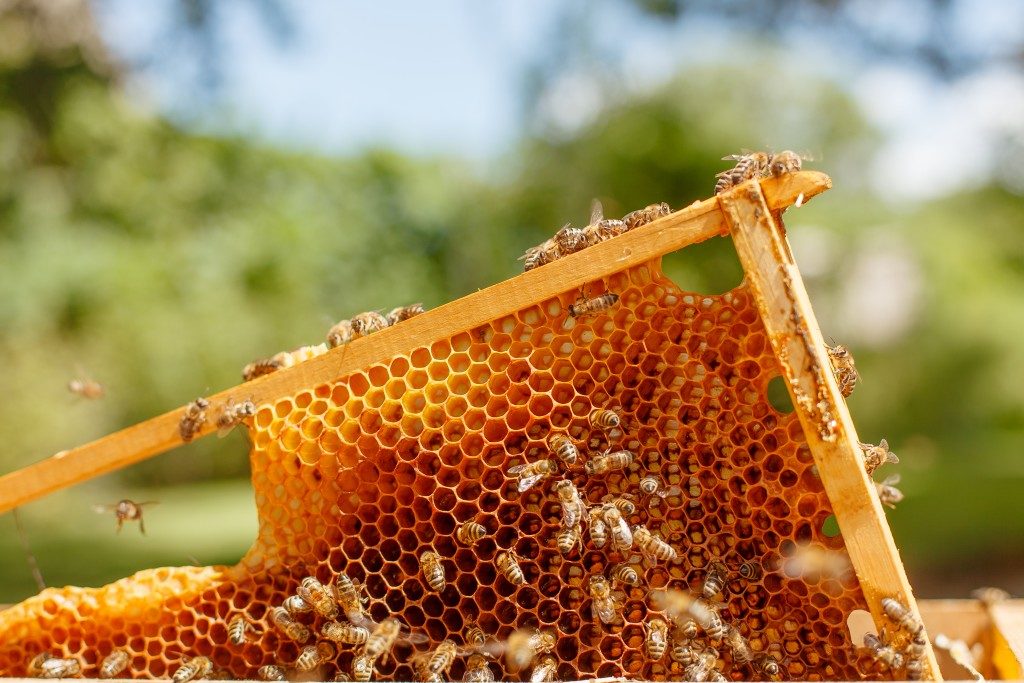Bees are some of the most important vectors (sometimes sole vectors) in the propagation of plants and trees. The existence of bees is essential to the environment, but their numbers are dwindling at alarming rates.
Bees and the Ecosystem
Bees are tiny industrious insects, spending all day fleeting about collecting nectar and making honey. However, if you think that honey is the only good product that bees help produce, you might be wrong. A third of the world’s food supply is created through the pollination of bees. A life without bees would be a life without apples, avocados, mangoes, peppers, berries, and a lot more — including coffee. Plants dependent on bees would cease to exist, and so would the animals that feed on them. A break at the top of the chain will inevitably affect everyone below. While humans aren’t necessarily at risk of dying without bees, it would be a much harsher and less enjoyable world.
A Threatened Existence
Whole colonies of bees are dying all over the world because of the careless actions of humans. Certain pesticides stick to the tiny hairs on a bee’s body as it gathers nectar or syrup. Even trace amounts of pesticide can find its ways to a bee’s brain, destroying its ability to process chemical signals and communicate with others of its kind. Once enough worker bees get poisoned and lose their ability to function, the demise of the hive is all but inevitable. Even without pesticides, air pollution is making it hard for bees to follow scent trails. Exhaust fumes from cars and trucks can obliterate the scent of flowers, making it harder for bees to find them and provide food for the colony. Bees that exist in the wild are so rare that certain orchards and farms (especially organic ones) have taken to hiring beekeepers, offering large sums of money for a few weeks’ worth of bees.
Nurturing Bees

One way to keep the bee population healthy is by nurturing them through beekeeping. While most beekeepers are in it for the money, a lot of them are genuinely concerned about bees. Beekeepers will usually maintain a network of contacts, allowing them to report problems or ask for aid from their peers. If you are interested in starting your hive, begin with a small beekeeping kit and see if you truly have the knack and the desire to keep bees. The practice is relatively safe, and modern methods and equipment have made beekeeping the safest it has ever been. Bees can forage in a two-mile radius from the hive, sometimes farther. You’ll be helping out most of the plants within that area, and you’ll get free honey as well. Of course, you can try selling honey, but that requires a more extensive setup with a lot more bees.
Bees don’t just sting and make honey; they are an essential part of life as you know it. Treasure these little creatures, or you might wake up into a world without strawberries, peppers, and coffee.

